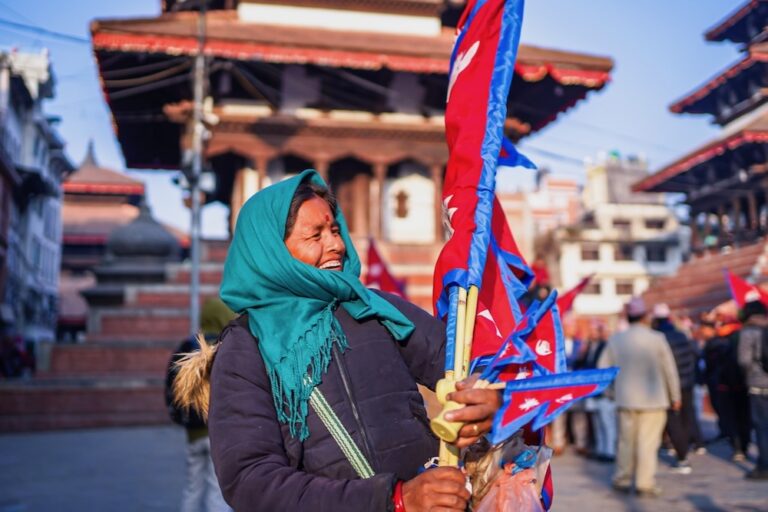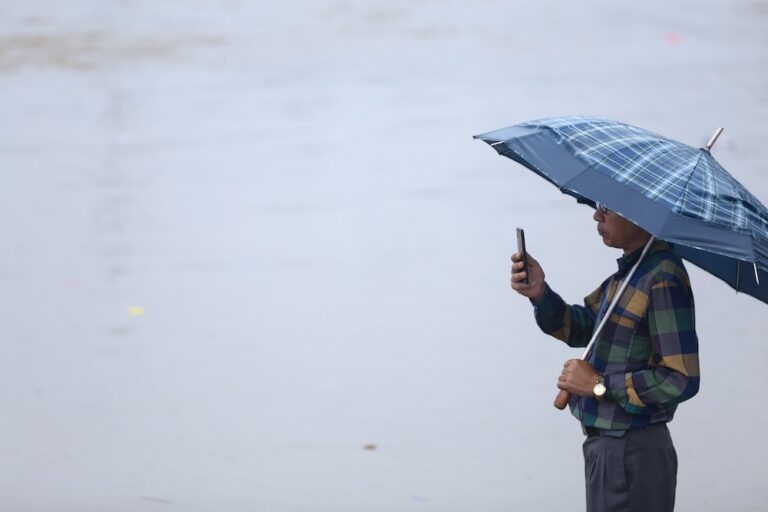(CEHURDES/IFEX) – The following is a CEHURDES press statement issued on the occasion of World Press Freedom Day: Nepalese Press Subject to Unprecedented Suppression Kathmandu, May 3, 2004, World Press Freedom Day Nepalese media continued to face attacks and assaults from both the government and Communist Party of Nepal (CPN-Maoist) rebels in the Nepalese year […]
(CEHURDES/IFEX) – The following is a CEHURDES press statement issued on the occasion of World Press Freedom Day:
Nepalese Press Subject to Unprecedented Suppression
Kathmandu, May 3, 2004, World Press Freedom Day
Nepalese media continued to face attacks and assaults from both the government and Communist Party of Nepal (CPN-Maoist) rebels in the Nepalese year 2060 B. S. (mid-April 2003 through mid-April 2004), said the Center for Human Rights and Democratic Studies (CEHURDES), a non-governmental organisation that has been monitoring the state of press freedom and freedom of expression in the country over the last five years.
The annual Nepal Report, published on the occasion of World Press Freedom Day (May 3), says that the security forces and Communist Party of Nepal (CPN-Maoist) rebels killed half a dozen journalists over the last year. Security forces killed journalist Binod Sajana Chaudhary, of Nepalgunj Express weekly, in Kailali district, local journalist Padma Raj Devkota in Jumla, and Nagendra Pokhrel in Morang district, in the name of their counter-insurgency offensive. Similarly, the rebels killed Gyanendra Khadka, of the state-owned National News Agency (RSS), in Sindhupalchok, and Mayor Gopal Giri (a media worker) in Birgunj. Amar Lama, publisher of Taja Khabar weekly, was abducted in broad daylight from his office in Kathmandu and killed within one hour in Kritipur, on the outskirts of the capital, by an unidentified group. The government has not taken any urgent initiative to bring the culprits to book in any of these murder cases.
According to CEHURDES’s record, seven journalists are still missing, including five who were reportedly arrested by security personnel. Their whereabouts remain unknown. Similarly, at least 86 media personnel were manhandled, while 22 journalists and three media outlets faced direct threats. Another 26 journalists were displaced from their residences and work areas last year amid threats by Maoists and security forces.
The atrocities against the press that increased after the declaration of the state of emergency in November 2001 further intensified following the dismissal of the elected government by King Gyanendra on October 4, 2002. The government detained a total of 49 journalists last year, while nearly 300 journalists and human rights activists were detained briefly while defying the government’s ban on peaceful assembly in Kathmandu last month. Dozens of journalists have been beaten and injured by the police while covering ongoing anti-King demonstrations in Kathmandu and other parts of the country organized by the five leading political parties.
There have been eight major incidences of publication seizures this past year. The government has not taken any action to fulfill its national and international obligations related to human rights, press freedom and freedom of expression, and there have been blatant violations of press freedom. CEHURDES is also worried by the environment of “self-censorship” that the Nepalese media is being forced to engage in.
CEHURDES has been calling upon the government, security forces and Maoist rebels to ensure the safety and security of media personnel and ensure that they are allowed to work freely and in a safe environment. CEHURDES further urges all concerned parties to respect universal standards of press freedom, freedom of expression, freedom of access to information and freedom of movement of journalists, free expression activists and human rights defenders, as well as the fundamental human rights of citizens. CEHURDES has also been coordinating with like-minded national and international organisations and networks to promote the cause of press freedom, freedom of expression and human rights in the country.
The full report will be published in “Nepal Report-2004”. If you would like to know more about the situation of press freedom and freedom of expression of Nepal, please feel free to contact us.
Center for Human Rights and Democratic Studies (CEHURDES)


